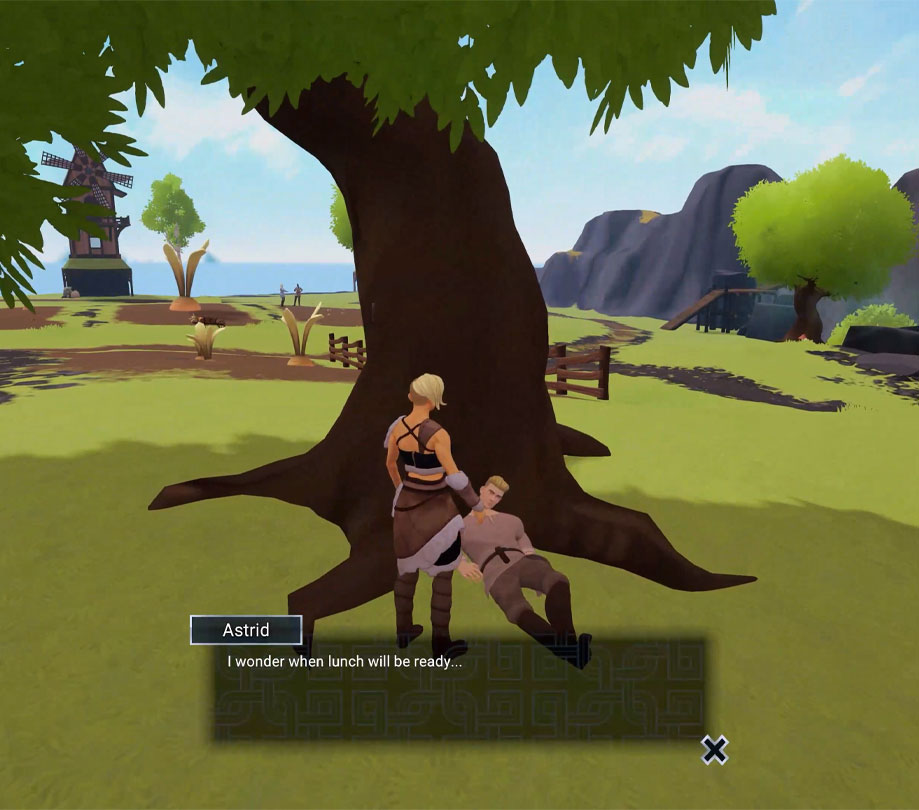Game Development
Unity price changes result in developers revolting
Tuesday, October 17, 2023

|
Richard Harris |

We recently caught up with Vanessa Mullin from Agora and discussed the ramifications of Unity's price change, the subsequent walkback of their policies, what other game development engines some developers switched to, and whether Unity can rebuild its relationships with developers or not.
The world of video game creation is always changing, with developers always looking for the best tools to make their games. For a long time, many have chosen Unity because it was easy to use and had clear costs. But recently, Unity changed how they charge, and it's caused a lot of upset. Many developers feel let down and are thinking about using different tools. This discussion will look into why Unity made these changes, what it means for game makers, especially smaller ones, and how it might change the future of game creation. I’ll also explore what Unity might do to fix the situation and whether game makers might start using other tools more often.
ADM: How has the new fee structure proposed by Unity impacted the developer community's trust in the platform?
Mullin: The recent pricing adjustments from Unity has severely fractured the trust within the developer community. Developers initially gravitated towards Unity because of its commitment to providing a predictable cost for development, ensuring they wouldn't be penalized for their success. This sudden shift to charging based on game installs, even potentially for pirated or repeat installations, feels like a betrayal of that trust and has left many feeling blindsided.
ADM: Unity was initially celebrated for offering stable and predictable costs for game development. What caused them to deviate from this approach?
Mullin: Unity's change from its pricing model suggests a shift in its core values and priorities. Previously, one of Unity's primary selling points was ensuring developers wouldn't be penalized for their success, setting them apart from competitors like Unreal. However, the recent changes hint at a stronger emphasis on profit generation, perhaps at the expense of supporting smaller developers.

ADM: What are the potential long-term implications of this fee structure on indie developers, particularly those whose games become unexpectedly popular?
Mullin: For indie developers the fee structure poses significant financial strain – especially in the event their game becomes a breakout hit. A game's sudden popularity, especially on platforms like mobile where revenue might come from ads or in-game monetization, could result in exorbitant costs. The unpredictable nature of these fees might deter innovation and risk-taking among developers, potentially stunting the growth of indie game culture.
ADM: Given the backlash, how do you see Unity's reputation recovering, if at all, in the developer community?
Mullin: Unity's reputation has undoubtedly taken a hit, with many developers feeling betrayed by the new fee structure. Recovery will require more than just apologies or minor policy adjustments. Unity needs to take tangible actions to realign itself with developers' needs and demonstrate its commitment to their success, not just its own profitability.
ADM: Some creators have suggested moving their games to other engines, like Unreal or Godot. How feasible is it for developers to make such a switch?
Mullin: Transitioning to a new game engine mid-development is a massive undertaking, often requiring significant time and resources. While Unity remains popular and feature-rich, other engines like Unreal and Godot are gaining traction and evolving rapidly. Developers will need to weigh the pros and cons, including the costs and potential benefits of migrating versus the long-term implications of staying with Unity.

ADM: How would you assess Unity's response to the feedback, particularly the clarifications and walk-backs they've made?
Mullin: Unity's response suggests they recognize the gravity of the situation. However, the mere act of introducing such a controversial fee structure indicates a disconnect from their core user base. Genuine engagement with the community and tangible action to address concerns will be crucial moving forward.
ADM: Can Unity rebuild its relationship with indie developers? If so, what steps should the company take to regain trust?
Mullin: It will be a challenging process, but Unity can mend its relationships. Unity should focus on realigning with developers' needs, perhaps by revisiting its fee structure, offering more transparent communication, and actively seeking feedback from the community to shape its future decisions.
ADM: How will this episode shape the future decisions of game developers when choosing a development engine?
Mullin: This episode serves as a cautionary tale, highlighting the importance of trust and consistency in business relationships. Developers might become more cautious and consider not just the technical aspects of an engine but also the company's values, long-term vision, and its history of decision-making.

ADM: Given the online surge in interest for Unity’s competitors, do you expect a significant shift in the industry landscape in the coming years?
Mullin: Unreal and Godot, Unity’s competitors, recent popularity indicates developers are actively exploring alternatives. If these platforms can capitalize on this interest by offering competitive features and a developer-centric approach, we might witness a notable shift in the industry landscape in favor of these alternatives.
ADM: What advice would you give to game developers who are currently unsure about their future with Unity or are considering a switch to another engine?
Mullin: For developers uncertain about their future with Unity, it's essential to assess both the immediate and long-term implications of staying or switching. While migrating can be challenging, it might be worthwhile if another engine aligns better with their values and goals. Developers should also explore supplementing features using native and web SDKs if specific needs aren't met by alternative engines. The decision should be a balance of technical feasibility, financial implications, and alignment with their game's vision.
About Vanessa Mullin
Vanessa is a seasoned leader in the gaming, metaverse, and social industry, with over nine years of experience in sales and business development. She is currently the Director of Games, Metaverse and Social at Agora, a platform that enables real-time engagement for any application or device.
At Agora, Vanessa connects great technology with great people, helping to bring their ideas to life. She leverages her skills in MEDDIC sales methodology, new business development, and communication to drive growth and innovation for Agora and its partners. She also co-chairs the VRARA's Metaverse Committee, and is a Women in Games Ambassador. Vanessa was nominated as one of the Top 100 Women of the Future 2022, and is motivated by creating impactful and immersive experiences for users.


Become a subscriber of App Developer Magazine for just $5.99 a month and take advantage of all these perks.
MEMBERS GET ACCESS TO
- - Exclusive content from leaders in the industry
- - Q&A articles from industry leaders
- - Tips and tricks from the most successful developers weekly
- - Monthly issues, including all 90+ back-issues since 2012
- - Event discounts and early-bird signups
- - Gain insight from top achievers in the app store
- - Learn what tools to use, what SDK's to use, and more
Subscribe here












Comments